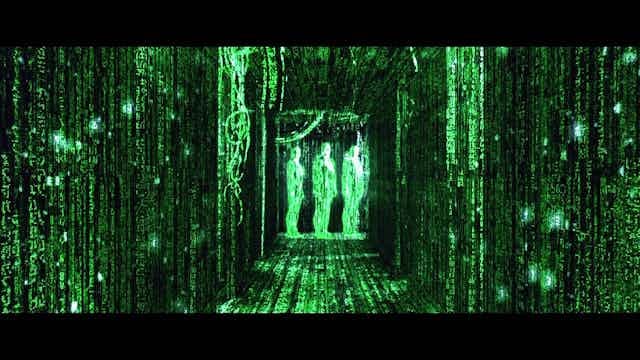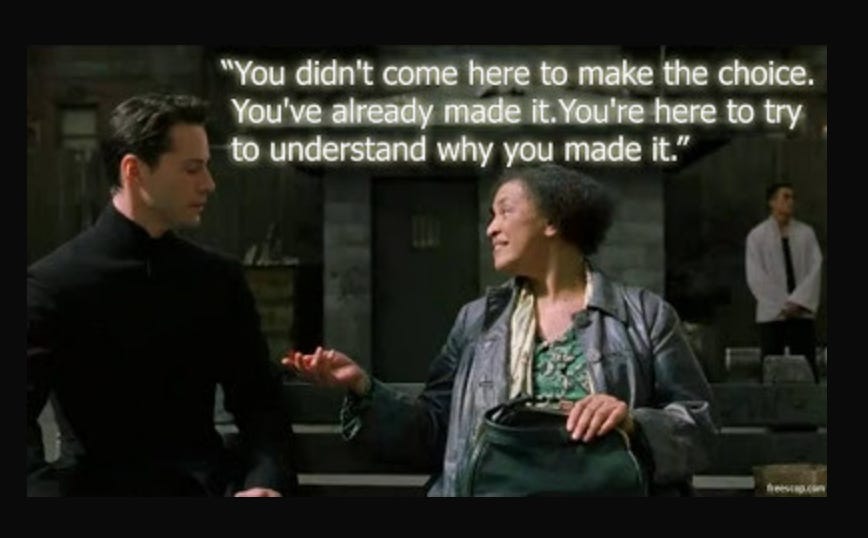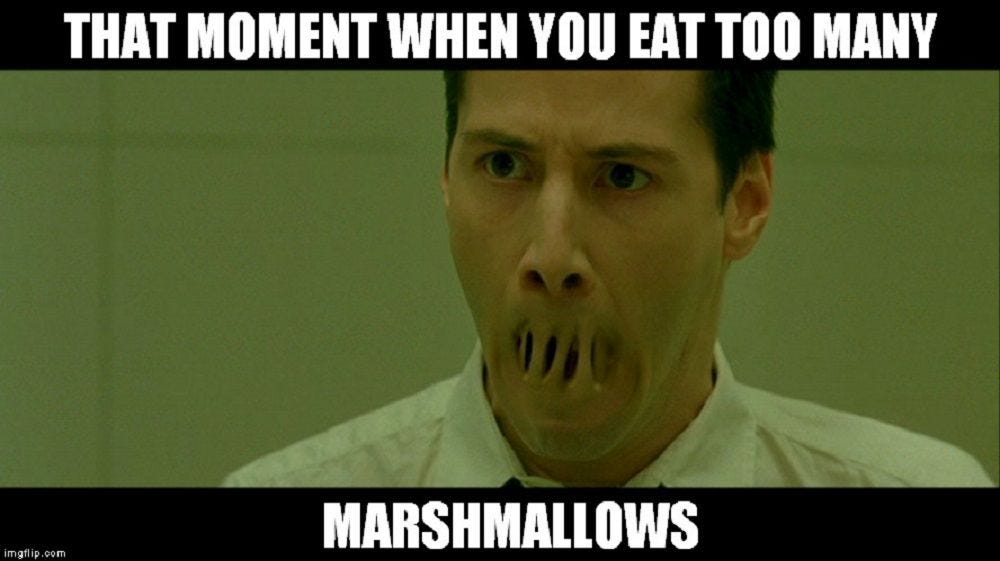Monica & the Matrix
#112 Angelinvesting.it - From idea to Series A - Weekly Newsletter
3 minutes to reflect
This week I saw the world transform into a sequence of 0s and 1s in front of my eyes like in The Matrix.
The keyword is "programmatic." The idea that thousands of lines of code inputted via terminal transform into actions is certainly not new for a programmer. But for users with zero coding experience, the interaction has always been mediated by a UI that developers built for me.
Now with Claude + Cursor (more later), an agent that writes code in real-time for you, I see the matrix. I see the zeros and ones of the world. And the world no longer seems the same to me.
It's like learning a new language and suddenly starting to think in it rather than translating. I'm experiencing a shift from being merely a consumer of technology to understanding its fundamental building blocks. The traditional barriers that kept programming as a specialized skill are dissolving before my eyes.
This democratization of code creation through AI feels revolutionary - a shift as significant as when graphical interfaces first replaced command lines. Except now we're coming full circle, with AI translating our natural language back into commands that shape our digital reality.
I've crossed through the looking glass, and I can't help but see everything around me as systems that can be rewritten, remixed, and reimagined.
2 resources to advance to pro
How Cursor works
Cursor is an AI-powered code editor that functions like a pair programmer at your side. Cursor integrates Claude and other AI models directly into your workflow, allowing you to simply describe what you want in natural language. Need a function to parse JSON data? Just ask. Want to refactor a complex piece of code? Highlight it and explain what needs changing. The AI interprets your intent and generates or modifies code in real-time, eliminating the need to constantly switch between documentation and StackOverflow.
DO TRY IT, ITS WORTH FEW HOURS OF YOUR TIME!!!
Beauty in the programmatic world
In The Matrix, Monica Bellucci's character, Persephone, represents something uniquely human and sensual in a world increasingly governed by code. Similarly, as programming becomes commoditized through AI, human taste and aesthetic judgment become more valuable, than ever!
When everyone can generate functional code, the differentiator becomes your unique vision - your taste-factor. It's the equivalent of moving from merely speaking a language to becoming a poet in that language. The true artists of tomorrow won't just write programs; they'll compose digital experiences that resonate on a human level, infusing soul into systems. In a world where anyone can conjure code from thought, what will matter most is which thoughts are worth conjuring.
1 reason to smile
Have a great weekend,
Simone






